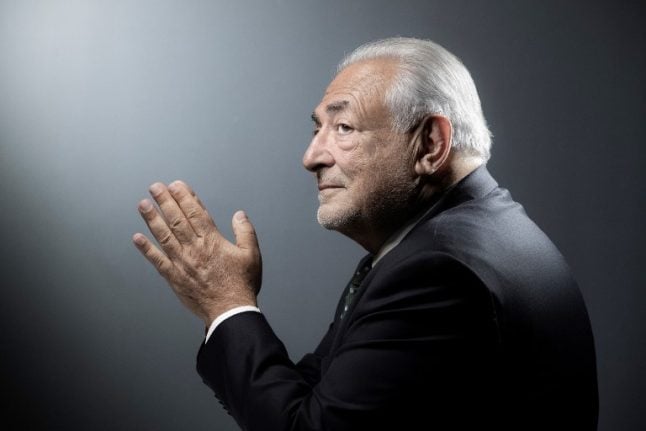French prosecutors on Friday said they would set up a face-to-face confrontation between Tristane Banon, 32, and the man she says locked her in a bare Paris flat in 2003 and assaulted her.
“Obviously I’m afraid. Obviously I’m not going to sleep the night before,” said Banon, responding to journalists’ questions about the prospective meeting.
Speaking at a rally organised by women’s rights groups and attended by around 100 supporters, Banon said she hoped her allegations would ultimately be assessed by a court.
“I am quite happy to see that justice is following its course,” she said.
“I have nothing to gain here. Neither a notoriety which I wouldn’t wish on anyone, nor money,” Banon said, adding she would give away any money awarded to her in a civil case she has vowed to file.
“It’s not fun being Tristane Banon at the moment,” she said.
Her mother Anne Mansouret, who was once Strauss-Kahn’s friend and one-time
lover, was also at the rally.
“I hope my daughter won’t be left disturbed, that she will cope,” Mansouret said.
Banon first made her allegations public on television in 2007, but only brought them to magistrates after a chambermaid at an upscale New York hotel accused Strauss-Kahn of sexual assault.
The New York prosecutor’s case collapsed last month after doubts emerged over the credibility of his accuser, Guinean immigrant Nafissatou Diallo, who is still seeking damages from a civil court in New York.
Diallo offered support to Banon on Saturday, conveyed through a woman who heads a group of Diallo’s French supporters.
“Nafissatou Diallo is, at this moment, here in her heart, next to Tristane Banon … next to all the women of France who are calling for justice,” Claude Ribbe said.
“She instructed me to tell you that she told the truth,” Ribbe added, refering to Diallo’s claims that Strauss-Kahn attacked her at New York’s Sofitel hotel.
Banon accuses Strauss-Kahn of wrestling with her “like a rutting chimpanzee” after luring her into an unfurnished Paris flat on the pretext of offering her an interview for a book she was writing.
Strauss-Kahn, 62, has admitted making “an advance” on Banon, but denies any use of violence and has lodged a lawsuit for slander against the writer over her claim.
Prosecutors have yet to decide whether to pursue charges.
Banon’s complaint is for attempted rape rather than sexual assault or harassment, and if the prosecutor decides to downgrade the charge Strauss-Kahn would be protected by a statute of limitations on the lesser crimes.
Banon told a television interviewer this week that she was keen to confront her alleged abuser in front of police.
“I want him in front of me so he can look into my eyes and say to my face that I imagined it,” Banon said in the interview.



 Please whitelist us to continue reading.
Please whitelist us to continue reading.
Member comments